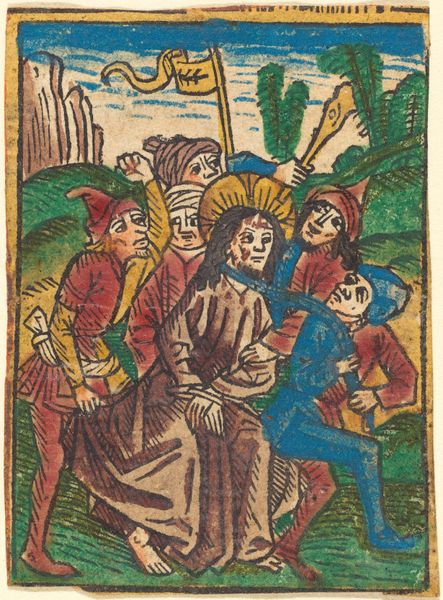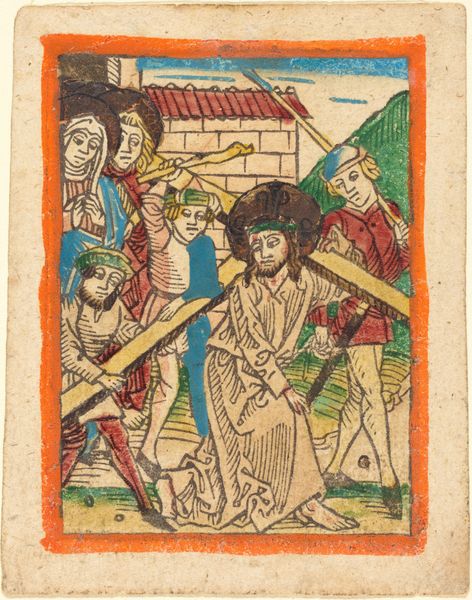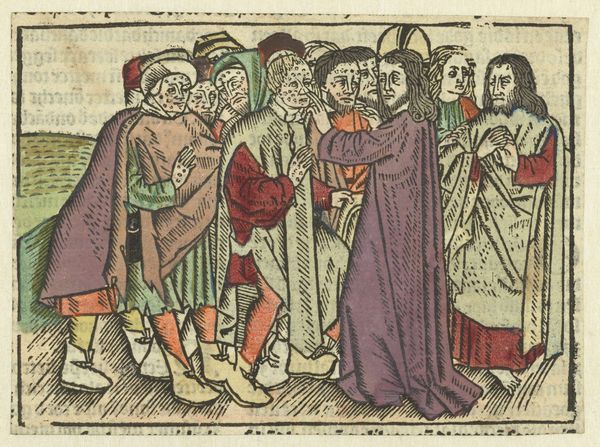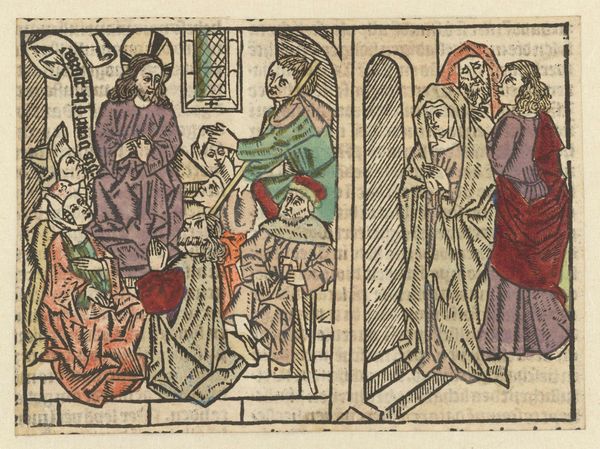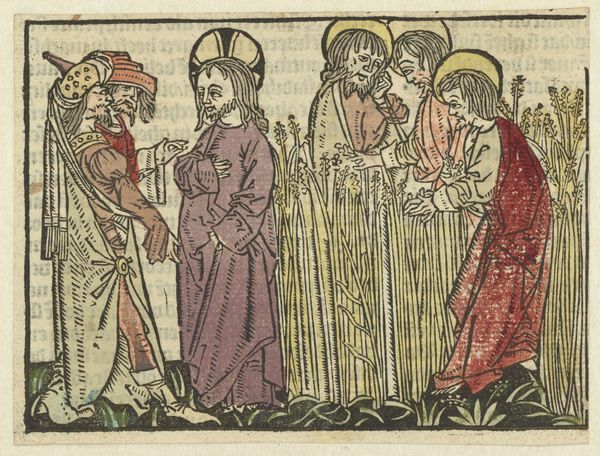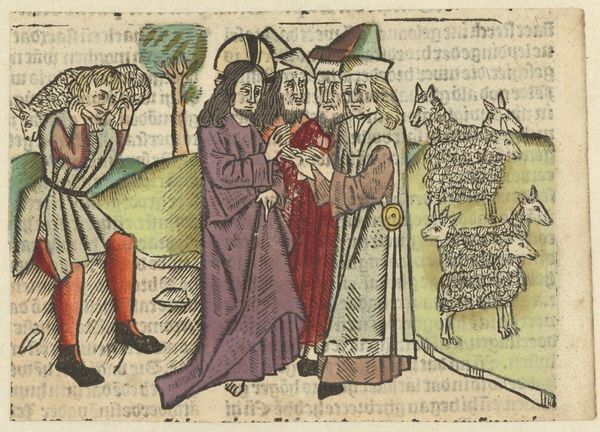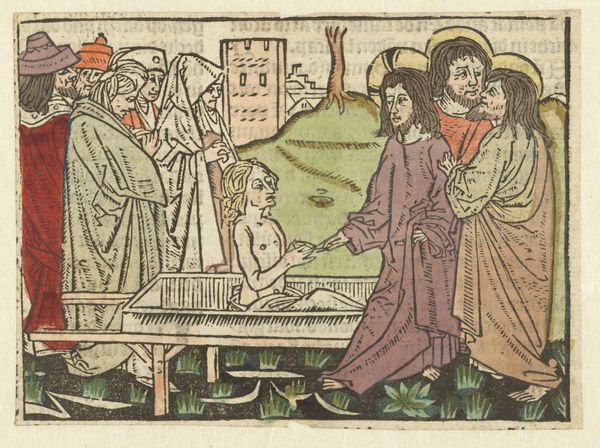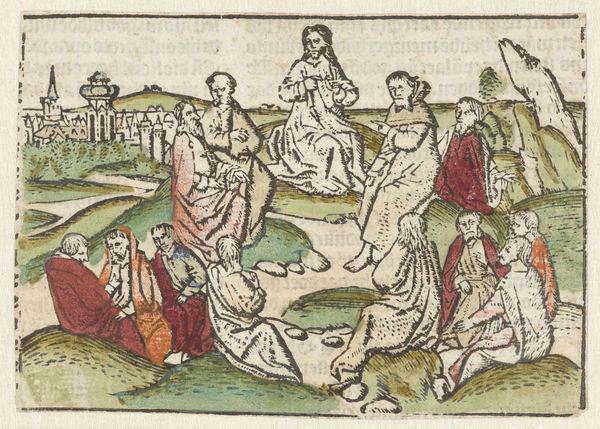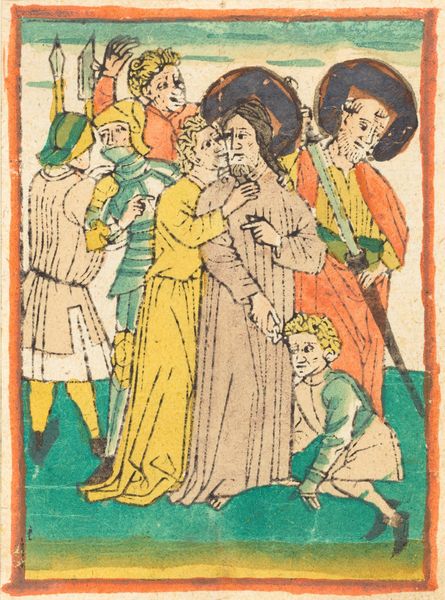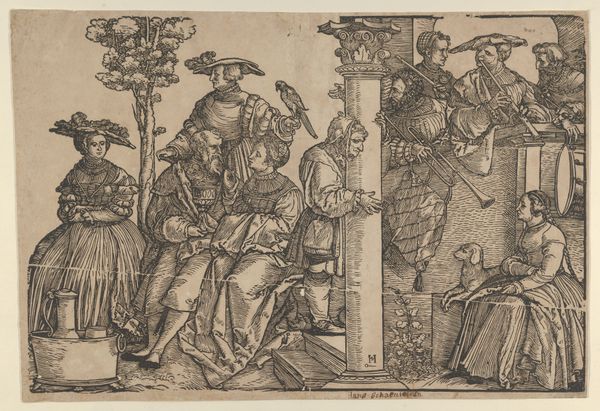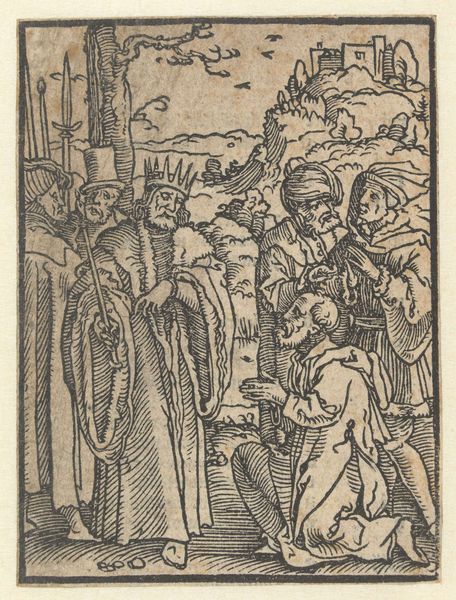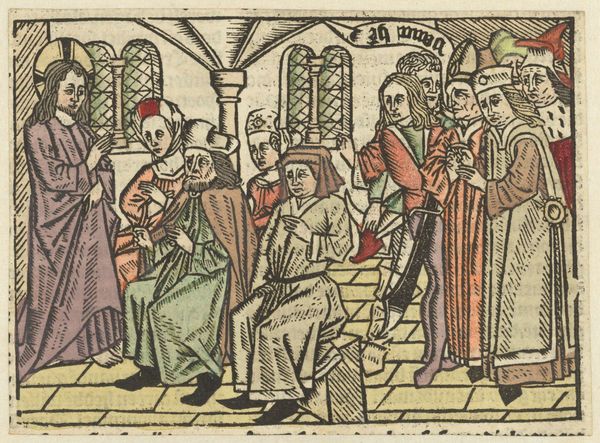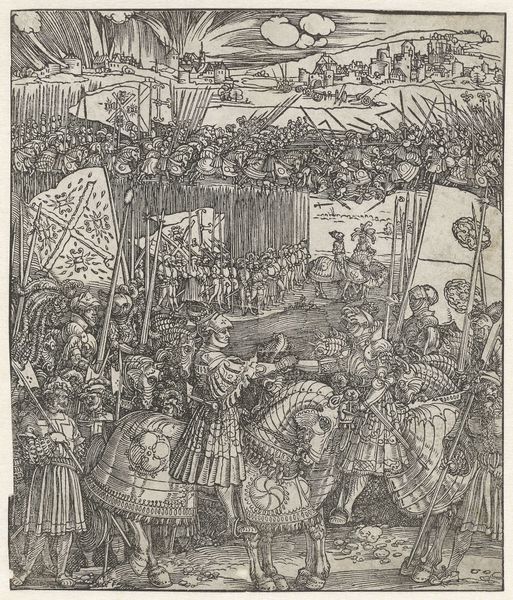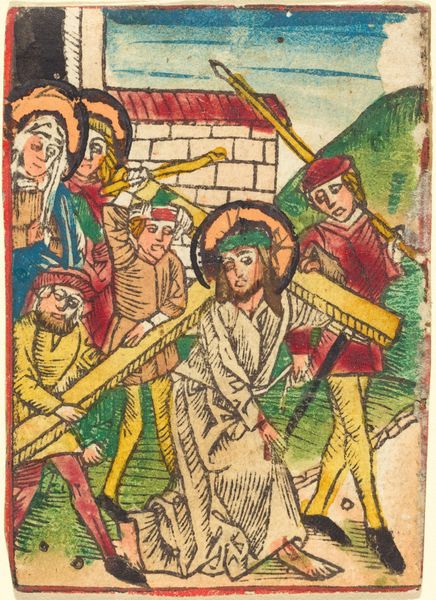
print, woodcut
#
medieval
#
narrative-art
# print
#
figuration
#
woodcut
#
history-painting
Dimensions: height 93 mm, width 130 mm
Copyright: Rijks Museum: Open Domain
Curator: Looking at "The Miraculous Multiplication of Loaves," created around 1485-1491 by the Master of Antwerp, what strikes you? It's a woodcut print. Editor: Well, first, the sheer density of figures. It's like a packed marketplace. I immediately notice the piles of baskets laden with bread in the background. How were these actually made? I wonder about the labor. Curator: Right, and considering it’s a narrative scene, we should think about who gets represented and how. Notice how the figures directly around Jesus appear lighter-skinned, elevated slightly by clothing or stature. It points to class and a deliberate social structure embedded within a religious moment. Editor: Agreed. The physical process—the carving of the woodblock, the repeated printing—it mirrors a type of mass production even back then. But I keep focusing on those baskets. I want to know the origin of the materials, how they were gathered, who wove them. It speaks to broader economic relationships of the time. Curator: Absolutely. The act of providing food is both miraculous and grounded in material reality. Considering the historical context, these images likely circulated during times of both religious fervor and significant social inequality, offering an interesting commentary on who has access to resources. Editor: Exactly! The image itself becomes a commodity, multiplied and distributed, much like the bread in the story. It connects religious dissemination and social structures of supply and consumption. Curator: Reflecting on this, I'm struck again by the power of art to intertwine faith, social dynamics, and material circumstances. Editor: For me, seeing how processes connect the spiritual with physical labor gives depth to religious narratives and unearths social practices.
Comments
No comments
Be the first to comment and join the conversation on the ultimate creative platform.
